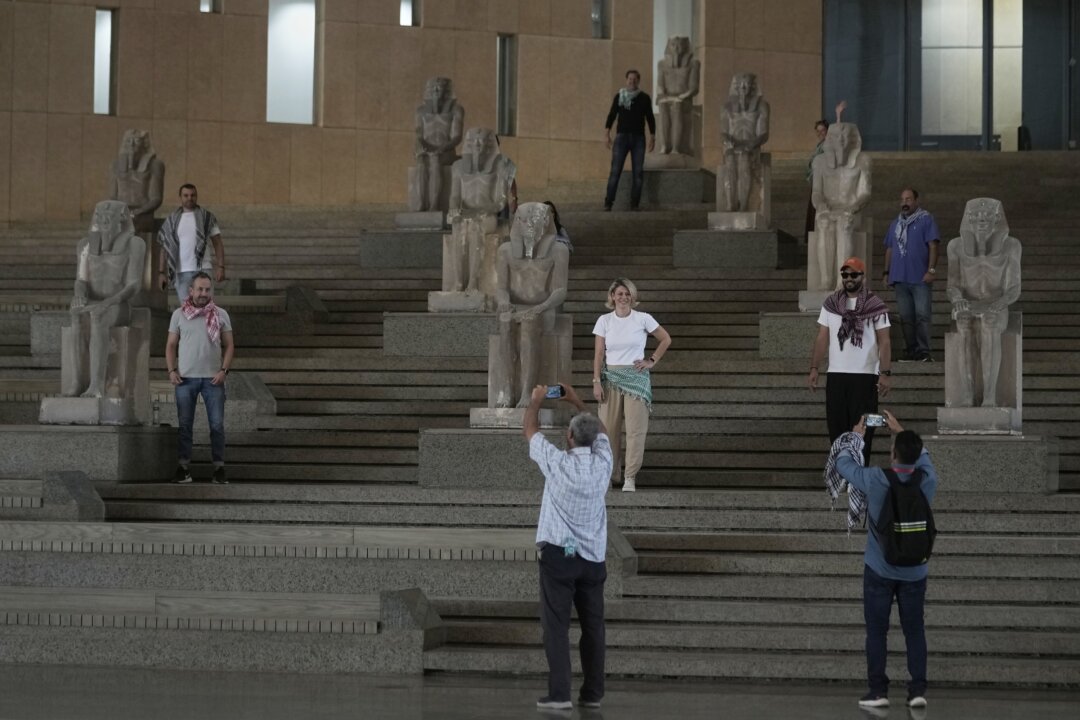UPDATE: Egypt officially inaugurated the Grand Egyptian Museum today, marking a significant milestone in the country’s cultural landscape. This monumental project, which has been over 20 years in the making, aims to revitalise Egypt’s tourism industry and bolster its economy, which has faced ongoing challenges.
Located near the iconic Giza Pyramids and the Sphinx, the museum is touted as the largest dedicated to an ancient civilization, showcasing an astonishing collection of more than 50,000 artifacts. Among the highlights is the complete collection of treasures from the tomb of the legendary King Tutankhamun, displayed together for the first time since its discovery in 1922.
The grand opening ceremony, attended by prominent world leaders, including heads of state and monarchs, is being celebrated as an “exceptional event in the history of human culture and civilization,” according to statements from the Egyptian President’s office. This gathering not only underscores the museum’s significance but also emphasizes Egypt’s role in preserving and promoting its rich heritage.
This ambitious project is expected to attract millions of tourists annually, with officials projecting substantial economic benefits for the country. The museum is more than just a structure; it represents a beacon of hope for Egypt’s struggling economy, aiming to revive sectors heavily impacted by recent global events.
As visitors begin to explore the vast halls filled with ancient relics, the museum is set to become a global attraction, drawing attention from scholars and tourists alike. Today’s inauguration is a pivotal moment for Egypt, as it seeks to reclaim its position as a leading destination for cultural tourism.
Next steps: Authorities will continue to monitor visitor feedback and engagement as the museum opens its doors to the public. With ongoing promotional campaigns, Egypt aims to ensure that the Grand Egyptian Museum becomes a staple in travel itineraries worldwide.
Stay tuned for further updates on this landmark event and its implications for Egypt’s future in global tourism.






